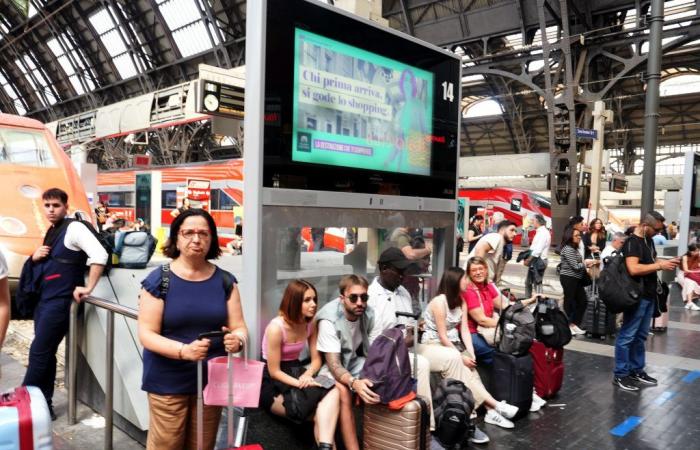Trains, public transport and planes. One strike in four in Italy concerns the transport sector. This is not news but a confirmation that comes from official data relating to 2023, released today by the president of the Commission to guarantee the implementation of the law on strikes in essential public services, Paola Bellocchi, in the annual report. With a “substantially stable trend compared to the previous year” in 2023 there were 1,649 strikes proclaimed, of which none 1,129 were carried out, of which 449 were strikes in the transport sector.
“In our country, despite the fact that the rules in force are all respected, a large phenomenon of micro-conflicts has been evident in transport for years, linked to the age-old issue of the fragmentation of union representation in the sector. We are witnessing a repeated recourse to strikes, often placed close to of public holidays, which generates disservices with such frequency that it appears difficult to understand to an ordinary citizen”, said Bellocchi.
The conflict in the air transport service was stable, in which there were 141 strikes, compared to 138 last year, of which 58 at national level. However, strikes in the rail transport service have decreased, with 57 abstentions (82 in 2022), of which 19 at national level. The conflict in maritime transport has been halved, with 6 strikes recorded in 2023, compared to 12 the previous year, of which 3 were national. A significant increase occurred, however, in the local public transport sector with 245 strikes carried out, compared to 193 the previous year, of which 17 at national level.
The disaggregated data confirms that these are mainly local conflicts, not linked to the deadlines of contractual renewals. Of the 1,129 strikes carried out during the year, 920 had a local dimension, well over 80%. “These are claims originating from the daily management of employment relationships (chronic shortage of staff, distribution of workloads, shifts, overtime, recognition of allowances), which multiply the opportunities for conflict” underlined the president.
Working conditions are aggravated by the new organization of essential public services, which leads to the outsourced management of many of these services. “As with all activities labor intensivewithin which the cost of labor is the most important expenditure item, this occurs through ‘downward’ contracts and subcontracts which, in some of the sectors within our competence, manifests itself with even notable differences in pay due to the different collective agreements applied, worsening compared to the specific one of the sector” Bellocchi specified. The Commission aims to create a digital register of strikes, which systematizes the information already available on the institutional website on the page dedicated to the Strike Calendar to provide immediate responses to citizens.






